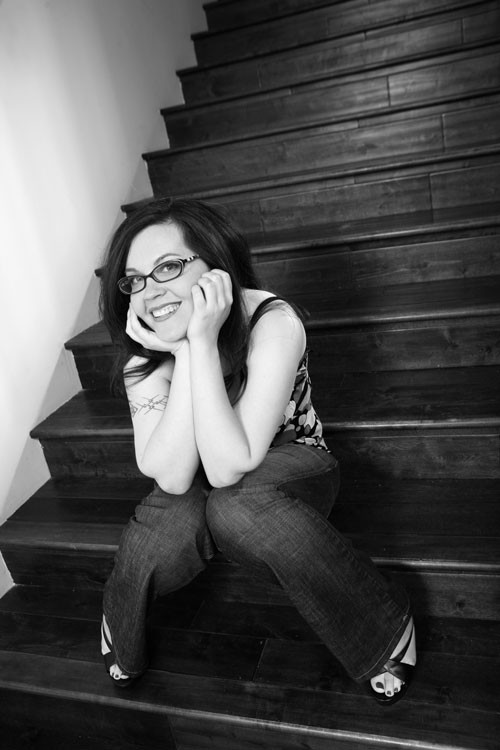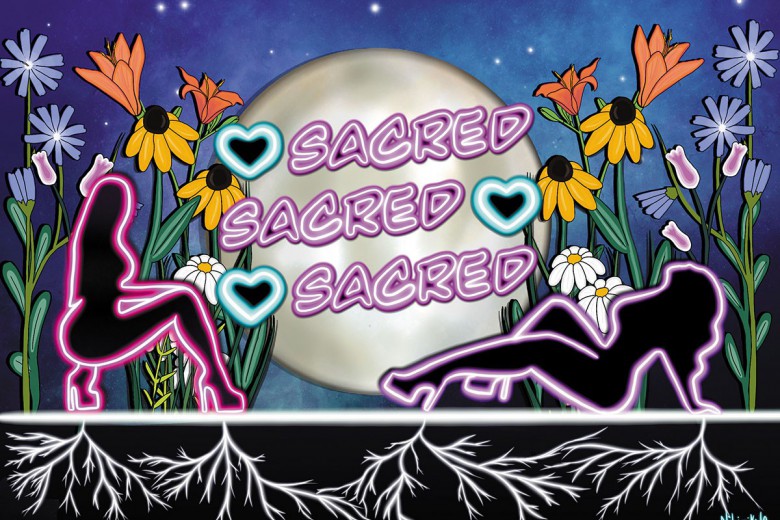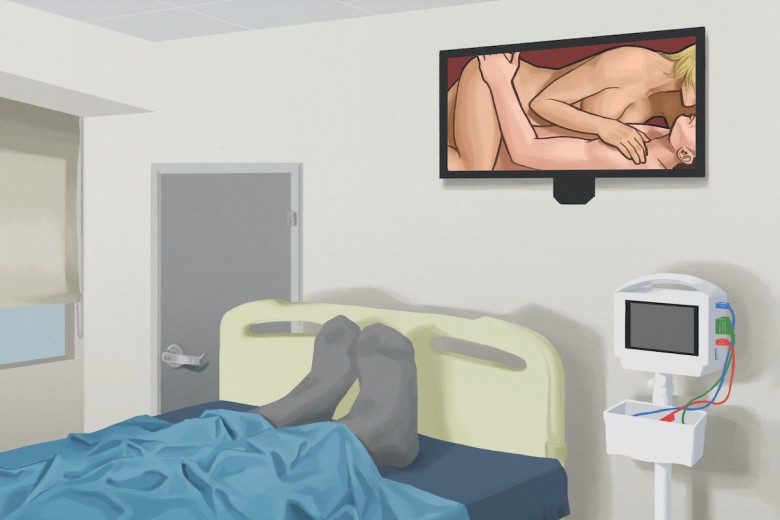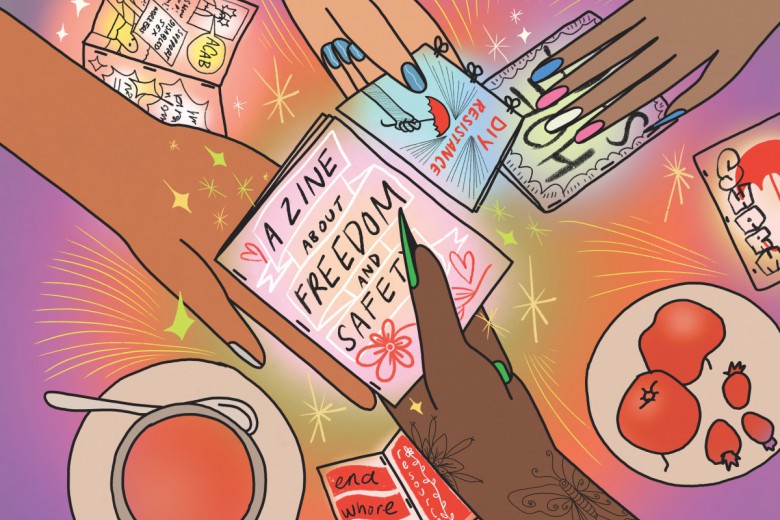
Conversations about polyamory – the practice of having more than one intimate partner at a time – are slowly finding their way into public consciousness. Two newly published books (Open: Love, Sex, and Life in an Open Marriage and Opening Up: A Guide to Creating and Sustaining Open Relationships) reflect an increasingly popular postmodern view of love and relationships led by post-second-wave feminist and queer communities.
In Open, Jenny Block uses personal narrative to shed light on the complex normality of open relationships. Her book nicely complements Tristan Taormino’s “how-to”-style Opening Up, which provides practical advice on making open relationships work. These two authors’ perspectives on legitimating family structures that encompass many kinds of love, not just that of one man and one woman, are a valuable addition to the debates that were rejuvenated in the wake of California’s passage of Proposition 8 banning gay marriage.
Open relationships seem to be making their way into mainstream media of late. Why do you think that is?
Jenny Block: People are becoming more open-minded about all sorts of things. They are also becoming more and more fed up with relationships that never seem to work for them. I believe that, ultimately, all most people really want is to be happy. People have that right, and they are coming to recognize that right. That leads to curiosity, which leads to media coverage, which leads to visibility, which leads to normalization. One of the reasons I wrote Open is to put a familiar face on what might seem, at first glance, to be a highly unfamiliar subject.
Tristan Taormino: As long as people have had relationships, some of those relationships have been consensually open. Many things that were once considered taboo – queer sexuality, anal sex, BDSM – gradually gain more visibility and acceptance in the mainstream. Open relationships are part of the shifting dialogue about love and sex in our society.
Although your books have overlapping topics, your approaches to writing about open relationships are quite different. Why did you choose these particular formats?
Taormino: Several books written about non-monogamy have been memoirs or have focused on the author’s personal experiences. I wanted to write a book that would get down to the nuts and bolts of open relationships, show people what their options are, and give them advice and guidance.
Block: The truth is, I had writer’s block. I was stuck about halfway into the process of writing the book, and I didn’t know how to break out of it. So, I was talking to my girlfriend about my dilemma and she said, “Well, what’s the book really about?” In that instant, the whole book manifested for me. I wrote down almost exactly what I told her, and that became the prologue and the framework for the book.
I chose personal narrative because it’s what I know. It’s my experience. I have a Master’s degree; I’ve read all the research. But what I know best is what I’ve been through. And regardless of what any research might say, you can’t argue with experience.
Tristan, you’ve spent a large part of your life educating people about sex. The focus in Opening Up, though, is more on relationships than sex itself. Do you see this as a departure from your other work?
Taormino: Yes and no. I don’t think I ever would have met so many different people in non-monogamous relationships if I wasn’t part of a sex-positive community. But this book is definitely focused on relationships; if people are expecting steamy tales of dirty three-way sex, they will be disappointed.
How do you each define “open relationships”?
Taormino: Definitions of polyamory usually characterize polyamorous relationships as both sexual and loving, because polyamory involves not just sex, but emotional relationships. But based on my research, “sexual and loving” doesn’t capture the nuances and complexities of polyamorous relationships. Those terms also don’t communicate how polyamory can not only reject mainstream models, but expand ideas about what constitutes a relationship.
I define polyamory as the desire and practice of having multiple significant, intimate relationships simultaneously; the relationships may encompass many elements, including love, friendship, closeness, emotional intimacy, recurring contact, commitment, affection, flirting, romance, desire, erotic contact, sex, and a spiritual connection.
I use open relationships as an umbrella term to encompass many different styles of non-monogamous relationships. There has been a lot written about swinging and polyamory, but people who are practicing non-monogamy who don’t identify with those terms, identities and communities have been left out of the discussion. I wanted my book to cover a diverse array of styles of open relationships.
Block: My husband and I are open to change. We are open to new ways of seeing ourselves, of viewing sex, of defining marriage, and of being. We are open to outside partners. But more than anything, we are open to thinking about new ideas and looking at the world in a new way instead of simply saying, “That’s the way it is, so I guess that’s the way it’s supposed to be” when it comes to love and sex and marriage and relationships.
My parents raised me to think for myself. My sexual partners, from my first boyfriend to my current partners, encouraged that too. I feel lucky. Really lucky. Sexual confidence is something everyone has a right to. It’s something we have to allow ourselves despite whatever outside pressures to ignore or suppress that. Being whole sexual beings is as important as all other aspects of our personhood.
Many people think non-monogamy is just about sex or about “having one’s cake and eating it too,” as it were. But non-monogamy can be about a lot of things. For some people it’s about love. For others, it’s a life philosophy. But, ultimately, it’s about living honestly.
Many people think that being non-monogamous means being a bad parent, a bad person, a slut, a sex addict, an immature person. The thought is that if you’re not like everyone else you must be wrong or bad. Those things simply aren’t true, at least not for me. Reading this book, hopefully, will help people to see that.
Some see non-monogamy as a means to resist heterosexual norms. How do you see it in the larger cultural and political spheres?
Taormino: I think open relationships resist norms about gender, commitment, marriage, and love. For some people, having an open relationship is part of a larger mission to challenge society’s norms, and for others, it’s simply a choice.
Block: I see it as one choice in a sea of many – an acceptable, healthy, workable choice. I’m not trying to make a larger statement; if that’s what my lifestyle does, it’s a by-product. I’m not trying to do anything; I’m just living in a way that feels true to me and my partners.
What fears do people have about open relationships?
Taormino: People fear they will be jealous, that their partner will find a “better” partner, that they will be replaced, that their relationship will end. These are pretty deep, intense fears that are intertwined with our feelings of self-worth and security. It takes a lifetime of work for people to work on their self-esteem, but it’s a crucial part of maintaining healthy relationships, whether they’re open or not.
Block: People are always comparing the worst of open relationships to the best of closed ones. I challenge those comparisons by living openly and honestly. I wrote the book, I continue to write articles, and I do as much press as I can. The key is to not be invisible. The only way that people will grow to understand other people’s relationships is by actually seeing them at work.
What are components to successful open relationships and what mistakes are commonly made?
Block: It’s important to communicate and remain flexible. I can’t predict the future; all I can do is live fully and intentionally. Speaking from my own experience, cheating on my husband was a mistake. I was not communicating as much as I could or should have. Not listening fully. I make the same mistakes everyone else does. Relationships are challenging. Being open is not a greater challenge, just a different one.
My husband and I know ourselves and each other better now. We are no longer sleepwalking through our lives. We don’t take things at face value. Now, whenever we examine what we do and how we do it, we ask, “Does that make sense? Does it work? Is it real?” That’s what I work towards every day – being present, being honest, and being forgiving of myself and others.
Taormino: There are probably as many mistakes as there are relationships. I think a common one is that people jump into the deep end too quickly. They want to be open about everything, with few rules and boundaries, and that can get them into trouble. Better to wade in slowly.
Some people have tried monogamy repeatedly, and it just does not work for them; open relationships offer an alternative. Many people feel free to explore different relationships, different desires and different dynamics when they are involved with more than one person. The elements of a successful open relationship are really the elements of any successful relationship: consent, self-awareness, honesty, communication, trust, good boundaries and commitment.
You both suggest that open relationships may be an antidote to the decline of marriage and the prevalence of adultery. Why is that?
Taormino: The decline of marriage and the prevalence of adultery are two strong indications that traditional monogamous marriage does not work for a majority of people. Cheating is a way that some people identify that they are unhappy or unsatisfied in their relationship, but it’s by no means the most common way people come to choose an open relationship. Some people begin as open, others discover it after many years of monogamy, and some are faced with a significant change that compels them to open their relationship. Open relationships aren’t the only antidote; crafting unique relationships, letting go of the happily-ever-after fairy tale and working hard at your partnerships are really the antidote.
Block: Cheating is what made me start to think about the nature of relationships and of human beings, but it wasn’t the cheating that led me to being open. That came from beginning to understand the history of marriage (commerce) and the biology of people (non-monogamy). I don’t think people who are monogamous are necessarily suppressing anything if they are choosing monogamy happily and consciously.
Heterosexual, monogamous marriage simply doesn’t work for everyone, but society all but demands that we live in one – or, at the very least, in the illusion of one. If open relationships were seen as an equally viable and acceptable option, I’d like to think that people would be able to make choices that really work for them, choices that actually are choices as opposed to simply doing something because that’s what everyone else is doing.
Open relationships won’t fix bad relationships, but having the option to be open or closed can soothe people’s fears of entrapment when they feel like it’s either marriage, loneliness, or being some sort of outlaw or freak for not feeling happy and fulfilled in a heterosexual, monogamous marriage.
Can education around open relationships – particularly how participants can recognize and negotiate emotions like jealousy and possessiveness – play a role in challenging domestic violence and promoting healthy relationships, be they closed or open?
Block: Yes. The more you know, the better – open, closed, whatever. True, honest, open communication is the key to any good relationship, whether it be family, friends, or lovers.
There are currently very few, if any, scripts or models for open relationships. Do you see your book as the beginning of script creation?
Taormino: I hope so. Society still does not accept or support non-traditional relationships. Many people feel that there is too much at stake – friends, community, parents, custody, employment – for them to come out about being non-monogamous.
Block: Open is an invitation for others to share their stories and experiences. So many people write me and come to see me at readings and say, “Thank you for being visible. Now I feel like I can be visible, too.”
I hope the book serves as a model of how relationships can be different from the mainstream and still work – open or otherwise. People have to be honest with themselves and one another about how they want to live and love and how they do live and love, despite appearances. I think it’s important that people not be judged for who and how they love. Because of the book, my life is, well, an open book. No pun intended.
Two things that are often left out of these discussions but are quite important are the legal and sexual health aspects of having multiple partners.
Block: Those were both outside of my purposes in writing Open. You can’t do it all in one book, and I had to make some tough decisions. This book focused more on my personal experience and the research that I found compelling in telling my story.
Taormino: Everyone I interviewed talked about safer sex, and I think it’s an important issue that needs to be discussed in some depth when talking about open relationships. The same is true for legal issues; our society is not set up for multi-partnered marriages, co-parenting, and polyamorous property ownership. People need to find creative ways to protect themselves, their families, and their property.
Jenny, how do you negotiate having an open relationship and being a parent?
Block: The same way one negotiates having a closed relationship and being a parent. I am a parent first. My daughter doesn’t see anything that is inappropriate. Right now she knows my girlfriend as my best friend. As she begins to ask questions, I will answer them. We aren’t ashamed of how we live and so we aren’t ashamed to tell our daughter about our choices. We want her to grow up with a strong sense of empowerment, empathy, and fairness.
People are different. People can be hateful. Love is all any of us have in the end. All we want is for my daughter to know those things and understand their truth and their power.
You both write about the ethical and emotional issues that can arise in open relationships. What types of support do you recommend for those exploring open relationships?
Taormino: It’s important to seek support from like-minded individuals in a community of folks who have experience with non-monogamy. If you seek therapy, it’s also crucial to find a therapist who is non-judgmental and has experience with non-monogamous clients.
Block: Identify friends and acquaintances who either are in open relationships or who understand that there’s not just one way to navigate the world. Read books and articles. Join the listservs and online groups. Seek out poly-friendly educators and counsellors. Surround yourself with people who love and understand you.
Who do you want to read your respective books and what do you want the reader to take from them?
Taormino: Opening Up is for anyone interested in creating a relationship that’s custom built for them, for loved ones of folks in open relationships looking to better understand them, and for people in helping professions who want to educate themselves about open relationships.
Block: Whether you are in an open relationship, curious about open relationships, or appalled by open relationships, Open gives you the chance to see inside someone’s marriage, to really see inside it. I cannot tell you how many letters I’ve received from people who have said that the book helped them to better understand themselves and their partners and strengthened their monogamous relationships.
~
Jenny Block is a freelance writer whose work has been featured in numerous publications and anthologies, including Rebecca Walker’s One Big Happy Family. A regular blogger for the Huffington Post and Tango, Block has written about politics, relationships, and parenting. She is also the weekly sex columnist for the Dallas Morning News publication Quick.
An award-winning author and filmmaker, Tristan Taormino is most known for her unabashed book and film guides to anal sex for women. She gives lectures around the U.S. and runs the website PuckerUp.com, which seeks to “educate people of all genders and sexual orientations in their pursuit of healthy, empowering, and transformative sex and relationships.”





